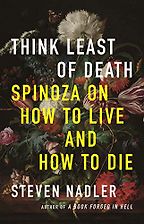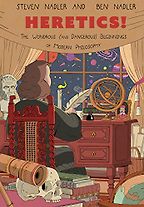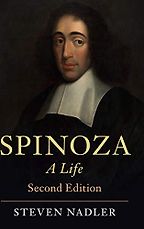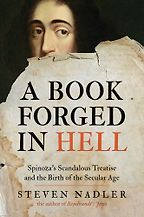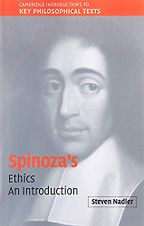
Books by Steven Nadler
Steven Nadler is William H. Hay II Professor of Philosophy, Evjue-Bascom Professor in Humanities and Weinstein-Bascom Professor of Jewish Studies at the University of Wisconsin-Madison. His research focuses on 17th century philosophy and he has written extensively on Descartes, Spinoza and Leibniz. His other focus is medieval and early modern Jewish philosophy. You can see all the books he’s written here. If you’re new to 17th century philosophy, we highly recommend his comic book, Heretics!, illustrated by his son, Ben Nadler.
Heretics! The Wondrous (and Dangerous) Beginnings of Modern Philosophy
by Ben Nadler (illustrator) & Steven Nadler
In Heretics! Steven Nadler, an American philosopher who is one of the leading experts on the early modern period (we interviewed him about the best books on Spinoza), teams up with his son Ben Nadler, an illustrator, to bring us a brilliant account of 17th century natural philosophy (a.k.a. the Scientific Revolution). It's an incredibly challenging topic, partly because these scientists and philosophers were partly wrong and partly right, and their world view so different from ours. The stakes were also very, very high, and the book starts with someone being burnt at the stake.
Interviews with Steven Nadler
-

1
The Collected Works of Spinoza (Volume I)
by Baruch Spinoza & Edwin Curley -

2
Behind the Geometrical Method: A Reading of Spinoza's Ethics
by Edwin Curley -

3
A Study of Spinoza's Ethics
by Jonathan Bennett -

4
The Explainability of Experience: Realism and Subjectivity in Spinoza's Theory of the Human Mind
by Ursula Renz -

5
Spinoza on Philosophy, Religion, and Politics: The Theologico-Political Treatise
by Susan James
The best books on Spinoza, recommended by Steven Nadler
The best books on Spinoza, recommended by Steven Nadler
In 1656 Baruch Spinoza was thrown out by Amsterdam’s Portuguese-Jewish congregation for ‘abominable heresies’ and ‘monstrous deeds’, ensuring he would be forever remembered as a radical thinker. Here Steven Nadler, a professor at the University of Wisconsin-Madison and author of a number of books on Spinoza, talks us through the life and work of the 17th century philosopher whose worldview remains, in many ways, remarkably modern.
